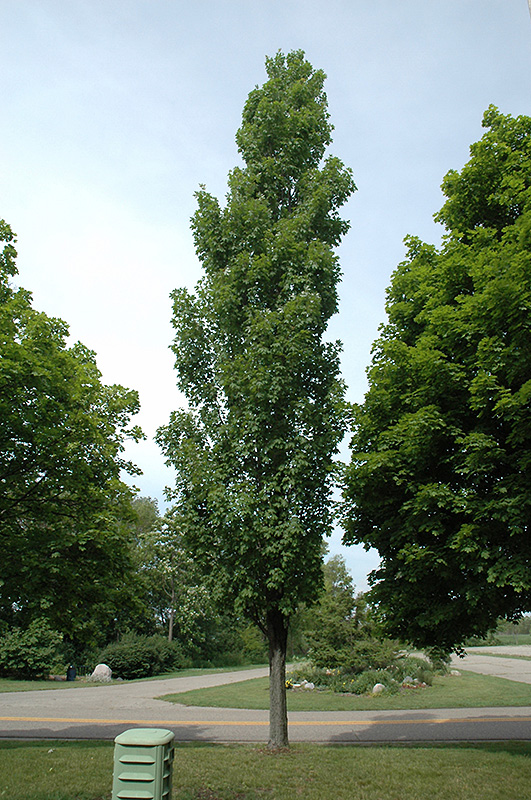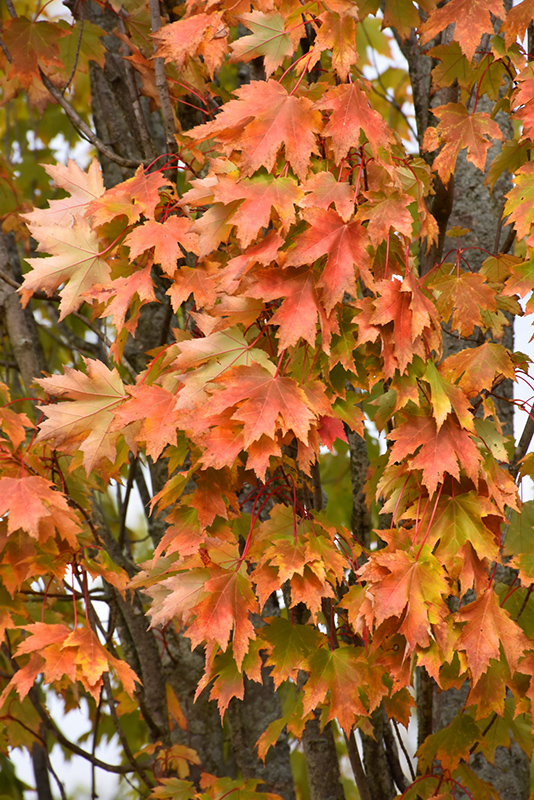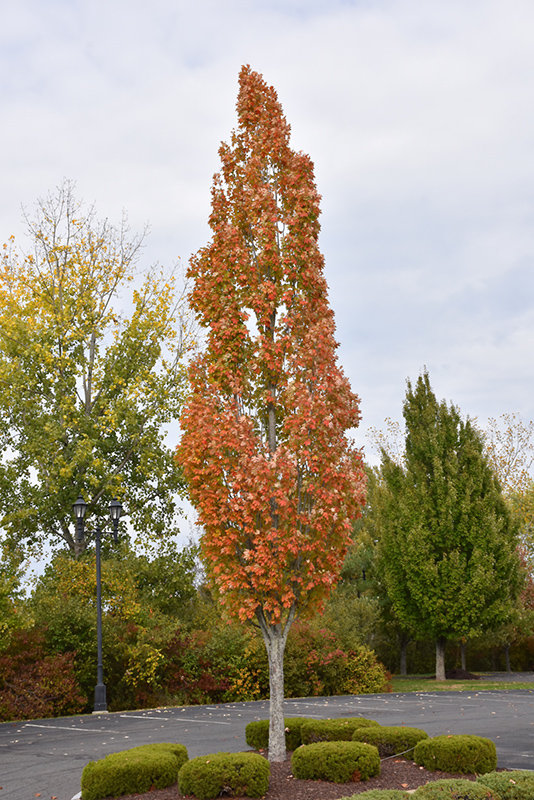PLANT FINDER
Armstrong Maple
Acer x freemanii 'Armstrong'
Height: 50 feet
Spread: 20 feet
Sunlight:
![]()
Hardiness Zone: 4a
Description:
A very distinctive hybrid maple with a narrow, upright growth habit, fast growing, inconsistent fall color; excellent choice for the smaller home landscape or for articulation, tends to broaden with age
Ornamental Features
Armstrong Maple is primarily valued in the landscape for its rigidly columnar form. It features showy clusters of red flowers along the branches in early spring before the leaves. It has green deciduous foliage. The lobed leaves turn outstanding shades of yellow, orange and red in the fall. The furrowed gray bark and brick red branches add an interesting dimension to the landscape.
Landscape Attributes
Armstrong Maple is a deciduous tree with a narrowly upright and columnar growth habit. Its average texture blends into the landscape, but can be balanced by one or two finer or coarser trees or shrubs for an effective composition.
This is a relatively low maintenance tree, and should only be pruned in summer after the leaves have fully developed, as it may 'bleed' sap if pruned in late winter or early spring. It has no significant negative characteristics.
Armstrong Maple is recommended for the following landscape applications;
- Accent
- Shade
- Vertical Accent
Planting & Growing
Armstrong Maple will grow to be about 50 feet tall at maturity, with a spread of 20 feet. It has a low canopy with a typical clearance of 6 feet from the ground, and should not be planted underneath power lines. As it matures, the lower branches of this tree can be strategically removed to create a high enough canopy to support unobstructed human traffic underneath. It grows at a fast rate, and under ideal conditions can be expected to live for 80 years or more.
This tree should only be grown in full sunlight. It is quite adaptable, prefering to grow in average to wet conditions, and will even tolerate some standing water. It is not particular as to soil type or pH. It is highly tolerant of urban pollution and will even thrive in inner city environments. This particular variety is an interspecific hybrid.




